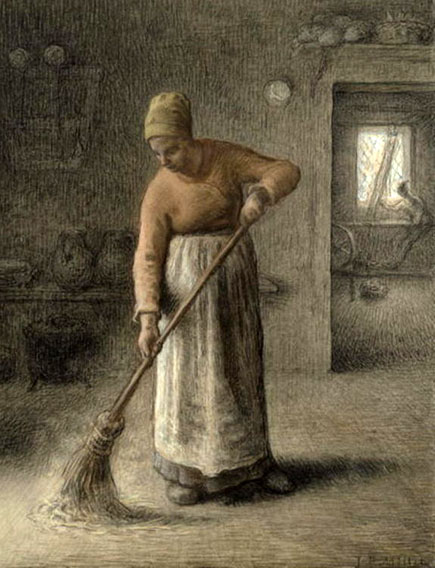Monday – Labor Day
I love posting this Rhina Espaillat poem for Labor Day because it captures our ambivalent feelings about work. On the one hand, it shows how work is almost a religion with us: the speaker’s grandmother responds, “Find work” whenever one is grieving. We are given the context we need for why the grandmother would resort to this tough “dictum” time and again. When she was a farm child, hard work anesthetized and muted her “country heart,” and when she was a widow with children, her faith in work was key to her survival. This may sound laudable.
Only the final two lines show that a price that has been paid. When the speaker talks about floors scrubbed “white as bone” and dishes that shine “painfully,” she points to the toll. “Life’s little duties” may seem infinite to the grandmother, but they cover over a very real pain. One senses no peace, no sense of a job well done, in that kitchen. Only “a truce with time/ spent in the lifelong practice of despair.”
Work can ennoble, but not when we sacrifice our humanity to it.
Find Work
By Rhina P. Espaillat
I tie my Hat—I crease my Shawl—
Life’s little duties do—precisely
As the very least
Were infinite—to me—
—Emily Dickinson, #443
My mother’s mother, widowed very young
of her first love, and of that love’s first fruit,
moved through her father’s farm, her country tongue
and country heart anaesthetized and mute
with labor. So her kind was taught to do—
“Find work,” she would reply to every grief—
and her one dictum, whether false or true,
tolled heavy with her passionate belief.
Widowed again, with children, in her prime,
she spoke so little it was hard to bear
so much composure, such a truce with time
spent in the lifelong practice of despair.
But I recall her floors, scrubbed white as bone,
her dishes, and how painfully they shone.


